Browser does not support script.

Nutritional Sciences PhD/MPhil
- Full-time: Up to 4 years
- Part-time: Up to 8 years
- Start date: Multiple start dates
- UK fees: £5,350
- International fees: MPhil - £32,400 or £35,750 depending on the nature of your project / PhD - up to £56,400 per year
Research overview
The overarching theme of the school's nutritional sciences research group is the scientific understanding and improvement of nutrition for both humans and animals.
The main areas of research include:
- Population based studies to assess nutrient status and health including areas like for example, dietary choice impacts, financial impacts, and effects of nutrition on fertility, pregnancy, and early infant outcomes
- Diet-health interactions in humans, including nutrient-gene interactions, cohort analysis and interventions, MRI imaging, and the influence of health and disease(s) such as obesity and diabetes on digestive process and nutrient utilisation
- Sustainable nutrition. The identification of novel protein sources for human and animal nutrition, mineral nutrition, and novel carbohydrates sources
- Nutritional enhancement of carbohydrates, fats, and proteins to enhance food quality,
- Food analysis and authentication (micronutrient assessment, allergenicity and novel routes of exposure, proximate analysis, food bioactives, metabolomics)
- The effect of dietary components (fatty acids, proteins, micronutrient and antioxidants) on health and disease processes
- Gastrointestinal models of nutrient bioavailability and utilisation
- The molecular basis of nutrient signalling
To view our areas of research in clinical nutrition, please see our Clinical Nutrition PhD page.
Course content
A PhD is an independent in-depth research project. You will be able to develop additional skills through training programmes to help you complete your PhD. See the support section for more details.
In each year you will have a regular meetings with your supervisor and an annual review.
An MPhil is a shorter research degree. You will do a research project over one to two years. You'll have a supervisor to support you. An MPhil is assessed by a research thesis.
Entry requirements
All candidates are considered on an individual basis and we accept a broad range of qualifications. The entrance requirements below apply to 2025 entry.
| Qualification | PhD/MPhil |
|---|---|
| Degree | 2:1 (or international equivalent) in a relevant subject or 2:2 (or international equivalent) in a relevant subject with a merit at masters. Other qualifications may also be accepted. |
| Qualification | PhD/MPhil |
|---|---|
| Degree | 2:1 (or international equivalent) in a relevant subject or 2:2 (or international equivalent) in a relevant subject with a merit at masters. Other qualifications may also be accepted. |
| International and EU equivalents | We accept a wide range of qualifications from all over the world. For information on entry requirements from your country, see our . |
| IELTS | 6.5 (6.0 in each element) |
| English language requirements | As well as IELTS (listed above), we also accept other . This includes TOEFL iBT, Pearson PTE, GCSE, IB and O level English. |
Meeting our English language requirements
If you need support to meet the required level, you may be able to attend a presessional English course. Presessional courses teach you academic skills in addition to English language. Our Centre for English Language Education is accredited by the British Council for the teaching of English in the UK.
If you successfully complete your presessional course to the required level, you can then progress to your degree course. This means that you won't need to retake IELTS or equivalent.
For on-campus presessional English courses, you must take IELTS for UKVI to meet visa regulations. For online presessional courses, see our CELE webpages for guidance.
Visa restrictions
International students must have valid UK immigration permissions for any courses or study period where teaching takes place in the UK. Student route visas can be issued for eligible students studying full-time courses. The University of Nottingham does not sponsor a student visa for students studying part-time courses. The Standard Visitor visa route is not appropriate in all cases. Please contact the university’s Visa and Immigration team if you need advice about your visa options.
We recognise that applicants have a variety of experiences and follow different pathways to postgraduate study.
We treat all applicants with alternative qualifications on an individual basis. We may also consider relevant work experience.
If you are unsure whether your qualifications or work experience are relevant, contact us .
For all of our research degrees, the first step is to identify one or more supervisors you would like to work with.
To do this, look through our academic staff research interests . We strongly encourage contacting supervisors before making a formal application, to discuss potential research projects and to ensure the best application possible.
Our step-by-step guide contains everything you need to know about applying for postgraduate research.
| Qualification | PhD | MPhil |
|---|---|---|
| Home / UK | £5,350 | £5,350 |
| International | £32,400 for low-cost projects, £35,750 for high-cost lab-based, £44,000 for technically intensive or specialised projects with high consumable costs, or £56,400 for exceptional technically intensive or specialised projects with high consumable costs. An assessment will be made on receipt of your project proposal and confirmed in your offer letter. For details, contact [email protected] | £32,400 or £38,400 depending on the nature of your project. An assessment will be made on receipt of your project proposal and confirmed in your offer letter. For details, contact [email protected] |
Additional information for international students
If you are a student from the EU, EEA or Switzerland, you may be asked to complete a fee status questionnaire and your answers will be assessed using guidance issued by the UK Council for International Student Affairs (UKCISA) .
These fees are for full-time study. If you are studying part-time, you will be charged a proportion of this fee each year (subject to inflation).
Additional costs
All students will need at least one device to approve security access requests via Multi-Factor Authentication (MFA). We also recommend students have a suitable laptop to work both on and off-campus. For more information, please check the equipment advice .
As a student on this course, we do not anticipate any extra significant costs, alongside your tuition fees and living expenses. You should be able to access most of the books and journals you’ll need through our libraries.
There are many ways to fund your research degree, from scholarships to government loans.
Check our guide to find out more about funding your postgraduate degree.
The school believes that formal training and guidance are critical components of the postgraduate experience and have developed specific and generic training which are available for all postgraduates.
Project-related training is provided by the supervisors and other staff within the school. You will have frequent contact with your supervisor, often on a weekly or even daily basis, and there is a formal requirement for at least 10 recorded meetings per year.
Teaching is typically delivered by professors, associate and assistant professors. Some practical laboratory sessions and research projects may be supported by postdoctoral research fellows.
Researcher training and development
The Researcher Academy is the network for researchers, and staff who support them. We work together to promote a healthy research culture, to cultivate researcher excellence, and develop creative partnerships that enable researchers to flourish.
Postgraduate researchers at Nottingham have access to our online Members’ area, which includes a wealth of resources, access to training courses and award-winning postgraduate placements.
Student support
You will have access to a range of support services , including:
- academic and disability support
- childcare services
- counselling service
- faith support
- financial support
- mental health and wellbeing support
- visa and immigration advice
- welfare support
Students' Union
Our Students' Union represents all students. You can join the Postgraduate Students’ Network or contact the dedicated Postgraduate Officer .
There are also a range of support networks, including groups for:
- international students
- black and minority ethnic students
- students who identify as women
- students with disabilities
- LGBT+ students
SU Advice provides free, independent and confidential advice on issues such as accommodation, financial and academic difficulties.
Where you will learn
Sutton bonington campus.
Sutton Bonington Campus combines world-leading laboratories with a countryside location, just a few miles from the city of Nottingham. The campus is home to over 2,500 biosciences and veterinary medicine students.
You will have access to student services, a library, sports centre and places to eat. Specialist facilities include the super lab, food processing pilot plant, glasshouses and University farm.
You can travel to University Park Campus in around 25 minutes on our free hopper bus.
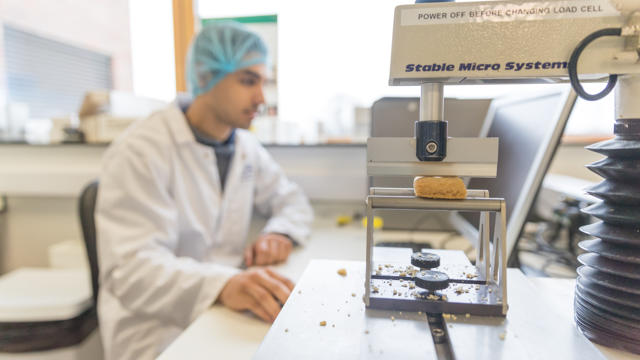
Food, Nutrition & Dietetics
The division contains a range of modern facilities including:
- a fully equipped dietetics laboratory for the preparation of modified diets
- clinical consulting rooms for taking anthropometric assessments and blood samples
- an extensive array of rheological techniques for the physio-chemical analysis of food
- cell culture facilities
- controlled growth incubators
- new liquid chromatography mass spectroscopy and gas chromatography mass spectroscopy
Whether you are considering a career in academia, industry or haven't yet decided, we’re here to support you every step of the way.
Expert staff will work with you to explore PhD career options and apply for vacancies, develop your interview skills and meet employers. You can book a one-to-one appointment, take an online course or attend a workshop.
International students who complete an eligible degree programme in the UK on a student visa can apply to stay and work in the UK after their course under the Graduate immigration route . Eligible courses at the University of Nottingham include bachelors, masters and research degrees, and PGCE courses.
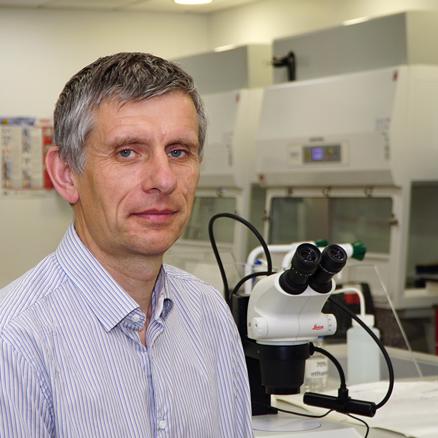
Related courses
Food sciences phd/mphil/mres, clinical nutrition phd, biosciences phd/mphil/mres, research excellence framework.
The University of Nottingham is ranked 7th in the UK for research power, according to analysis by Times Higher Education. The Research Excellence Framework (REF) is a national assessment of the quality of research in UK higher education institutions.
- 90%* of our research is classed as 'world-leading' (4*) or 'internationally excellent' (3*)
- 100%* of our research is recognised internationally
- 51% of our research is assessed as 'world-leading' (4*) for its impact**
*According to analysis by Times Higher Education ** According to our own analysis.
This content was last updated on 01 July 2024 . Every effort has been made to ensure that this information is accurate, but changes are likely to occur between the date of publishing and course start date. It is therefore very important to check this website for any updates before you apply.
- Current Students
- News & Press
- Research Excellence
- Teaching & Student Experience
- Graduate Employability
- UK Rankings
- World Rankings
- Single Topic Rankings
- Research Excellence Framework
- Higher Education Awards
- Ageing and Health
- Cities and Place
- Culture and Creative Arts
- Social Justice
- Engagement and Place Awards 2024
- Faculty of Science, Agriculture & Engineering
- Faculty of Humanities & Social Sciences
- Faculty of Medical Sciences
- Central and South Asia
- Latin America
- Middle East and North Africa
- North America
- Small Island Developing States
- South East Asia and Oceania
- Sub-Saharan Africa
- Transparency
- Office for Students Transparency Data
- Access & Participation
- Support for our Community
- UN Sustainable Development Goals
- https://www.ncl.ac.uk/who-we-are/equality/race-equality/black-history-month/
- Faith, Religion & Belief
- Lesbian, Gay, Bisexual & Transgender
- Let Us Know
- Workplace Adjustments
- Useful Resources
- Equality Analysis
- Social Justice Stories
- Voluntary & Community Groups
- Santander Universities
- Regional Partnerships
- Widening Participation
- Newcastle Helix
- Art on Campus
- History of Newcastle University
- Education Strategy
- Find a Degree
- Subject Areas
- Step-by-Step Guide for UK Students
- Step-by-Step Guide for International and EU Students
- Applying through UCAS
- A and AS Levels
- Application Decisions
- Access Schemes and Pathway Programmes
- Policies and Procedures
- Applicants with Disabilities
- Mature Applicants
- Deferred Entry
- Undergraduate Application Advice
- Subject Scholarships
- Sports Scholarships
- Opportunity Scholarships
- VC's Excellence Scholarships
- VC's Global Scholarships
- VC's International Scholarships
- International Foundation Scholarships
- St Nicholas’ Educational Trust Scholarship
- NU Sanctuary Scholarships
- Undergraduate Norway Scholarship
- International Family Discounts
- VC’s EU Scholarships – Undergraduate
- VC's Excellence Scholarships - Europe
- VC's Business Excellence Scholarships - Europe
- Additional Costs
- Student Loans
- International Student Finance
- Undergraduate Open Days
- Sign up and Discover
- School and College Outreach
- Information for Parents and Supporters
- Why Choose Newcastle?
- Your Study Options
- Qualifications Explained
- Postgraduate Research Programmes
- Search for Funding
- Guide to Funding
- Postgraduate Tuition Fees
- Application Help
- Advice & Resources
- Your Offer Guide
- Postgraduate Open Days
- Doctoral College
- Distance Learning
- Continuing Professional Development (CPD)
- Study Support
- Campus Tours
- Life in Newcastle
- Get Involved
- Cost of Living
- Health & Wellbeing
- Mature Students
- Childcare Support
- Care Leavers
- Asylum Seekers
- Teaching & Learning
- Student Blog - Belong
- Types of Rooms
- Accessibility and Individual Requirements
- Bedrooms we offer
- Accommodation Guides
- New Student Guarantee
- Advanced Booking
- Submit an Application
- Part Year Student Accommodation
- What Happens Next?
- Safety and Security
- Returning Next Year
- Extending Your Stay
- Room Changes
- Parking & Bicycle Storage
- Post and Parcels
- Guest Visitors and Going Away
- Energy & Recycling
- ResLife Find a Flatmate
- Your ResLife Team
- Student Support
- Payment Methods
- Payment Schedules
- Managed Partnerships
- Rent Adjustments
- Student Village Receptions
- Your Accommodation Team
- Report a Fault
- Feedback and Complaints
- Internet Connection
- Work Placements
- About the Careers Service
- Careers Service News
- Careers Service Events
- Work for Yourself
- Career Planning
- Careers Modules
- Making Applications
- Interviews, Tests & Assessment Centres
- Internships, Placements & Shadowing
- Finding Jobs
- Handling Job Offers
- Researching Employers
- Making Contacts
- Further Study
- Awards, Competitions & Project Funding
- Volunteering
- Boost Your CV
- Defence Technical Undergraduate Scheme (DTUS)
- Getting Here
- Self-Guided Campus Tours
- Undergraduate Offer Holder Days
- Postgraduate Schools & Supervisors
- Tier 4 Visa from Inside UK
- Tier 4 Visa from Outside UK
- Short-Term Visa from Outside UK
- International Study Blog
- Our Pathway Courses
- English Language Courses
- Fees, Costs and Scholarships
- INTO Newcastle University
- Student Exchange and Study Abroad
- Request a Prospectus
- Chat to a Student
- Your Academic Experience
- Research Impact
- Research Strengths
- Centre for Ageing and Inequalities
- Centre for Biomedical Engineering
- Centre for Cancer
- Centre for Children and Youth
- Centre for Climate and Environmental Resilience
- Centre for Cyber Security and Resilience
- Centre for Data
- Centre for Energy
- Centre for Healthier Lives
- Centre for Heritage
- Centre for Landscape
- Centre for Mobility and Transport
- Centre for Rare Disease
- Centre for Researching Cities
- Centre for Transformative Neuroscience
- Centre for Water
- Research Culture Action Plan
- Working Together on Research Culture
- Global Partnerships
- Let's Work Together
- Research Excellence Framework (REF) 2021
- Research Directory
- Research Integrity
- Code of Good Practice in Research
- University Research and Innovation Committee
- Ethics Forms and Processes
- GDPR Information for Research
- Ethics Toolkit
- Responsible Research Innovation
- Animals and Research
- Research Metrics
- Export Control
- Open Research
- Policies and Guidance
- Researcher Development
- Technicians' Community
- Research Facilities
- Research Funding
- Research News
- Case Studies
- CPD Courses
- Collaborative Research
- Company Creation
- Consultancy
- Corporate Partnerships
- DA Power Engineering
- DA MSc Digital Technology Solutions
- DA Executive Education Snr. Leader Apprenticeships
- Facilities and Equipment
- Intensive Industrial Innovation Programme
- Knowledge Transfer Partnerships
- Technology Transfer and Licensing
- Clinical Trials & Research
- Working with Newcastle
- Tender Opportunities
- Submitting an Invoice
- Sustainable Procurement
- Code of Conduct & Terms and Conditions
- Health & Social Challenges
- Creative Collaborations
- Connect with alumni
- Develop your career
- Discover lifelong learning opportunities
- Support future generations
Food and Human Nutrition MPhil, PhD
Our Food and Human Nutrition PhD and MPhil seek to understand how food affects human health and wellbeing.
You are currently viewing course information for entry year:
Start date(s):
- September 2024
- January 2025

Within your research, you'll explore how nutrition affects:
- healthy ageing
- food security
- sensory quality
- international nutrition
- personalised nutrition.
Our research is multidisciplinary and cross-disciplinary. We have many expert research areas in the School. We also work across the University, through the Human Nutrition Research Centre .
Our research themes include:
Health benefits of consuming selected foods and food types. Our research looks at cardiovascular health, cancer, sarcopenia and cell damage. We'll explore:
- whole grains
- nitrate-rich vegetables
- food supplements
Elucidation of roles of fat-soluble vitamins in health and disease. We examine:
- vitamins A and D
- modelling and understanding sources
- metabolism in humans and farm animals
Medicinal properties of herbs and plant extracts. We explore the effects on:
- cognitive performance
Effects of production/processing factors on food composition & sensory quality. We look at:
- effects of organic/conventional production
- supply chain temperatures
- varieties/breeds
Important information
We've highlighted important information about your course. Please take note of any deadlines.
Please rest assured we make all reasonable efforts to provide you with the programmes, services and facilities described. However, it may be necessary to make changes due to significant disruption, for example in response to Covid-19.
View our Academic experience page , which gives information about your Newcastle University study experience for the academic year 2023-24.
See our terms and conditions and student complaints information , which gives details of circumstances that may lead to changes to programmes, modules or University services.
Related courses
Qualifications explained.
Find out about the different qualification options for this course.
An MPhil is available in all subject areas. You receive research training and undertake original research leading to the completion of a 40,000 - 50,000 word thesis.
Find out about different types of postgraduate qualifications
A PhD is a doctorate or doctoral award. It involves original research that should make a significant contribution to the knowledge of a specific subject. To complete the PhD you will produce a substantial piece of work (80,000 – 100,000 words) in the form of a supervised thesis. A PhD usually takes three years full time.
How you'll learn
Depending on your modules, you'll be assessed through a combination of:
Our mission is to help you:
- stay healthy, positive and feeling well
- overcome any challenges you may face during your degree – academic or personal
- get the most out of your postgraduate research experience
- carry out admin and activities essential to progressing through your degree
- understand postgraduate research processes, standards and rules
We can offer you tailored wellbeing support, courses and activities.
You can also access a broad range of workshops covering:
- research and professional skills
- careers support
- health and safety
- public engagement
- academic development
Find out more about our postgraduate research student support
Your development
Faculty of medical sciences (fms) researcher development programme .
Each faculty offers a researcher development programme for its postgraduate research students. We have designed your programme to help you:
- perform better as a researcher
- boost your career prospects
- broaden your impact
- Through workshops and activities, it will build your transferable skills and increase your confidence.
You’ll cover:
- techniques for effective research
- methods for better collaborative working
- essential professional standards and requirements
- Your programme is flexible. You can adapt it to meet your changing needs as you progress through your doctorate.
Find out more about the FMS researcher development programme
Doctoral training and partnerships
There are opportunities to undertake your PhD at Newcastle within a:
- Centre for Doctoral Training (CDT)
- Doctoral Training Partnership (DTP)
Being part of a CDT or DTP has many benefits:
- they combine research expertise and training of a number of leading universities, academic schools and academics.
- you’ll study alongside a cohort of other PhD students
- they’re often interdisciplinary
- your PhD may be funded
Find out more about doctoral training and partnerships
If there are currently opportunities available in your subject area you’ll find them when you search for funding in the fees and funding section on this course.
The following centres/partnerships below may have PhD opportunities available in your subject area in the future:
- Discovery Medicine North - MRC DiMeN Doctoral Training Partnership
Your future
Our careers service.
Our award-winning Careers Service is one of the largest and best in the country, and we have strong links with employers. We provide an extensive range of opportunities to all students through our ncl+ initiative.
Visit our Careers Service website
Quality and ranking
All professional accreditations are reviewed regularly by their professional body
From 1 January 2021 there is an update to the way professional qualifications are recognised by countries outside of the UK
Check the government’s website for more information .
Our modern laboratories provide important teaching and research environments. They have analytical equipment such as:
- CNS analyser
- centrifuges
- spectrophotometer
- molecular biology equipment
Our specialist research facilities include:
- a tissue culture laboratory
- plant growth rooms
- a Class II laboratory for safe handling of human biological samples
- taste panel facilities and test kitchen
- a thin section facility for soils analysis
Find out more about our lab facilities
Fees and funding
Tuition fees for 2024 entry (per year).
We are unable to give an exact fee, this is why the fee is shown as a range. This fee range takes into account your research topic and resource requirements.
Your research topic is unique so it will have unique resource requirements. Resources could include specialist equipment, such as laboratory/workshop access, or technical staff.
If your research involves accessing specialist resources then you're likely to pay a higher fee. You'll discuss the exact nature of your research project with your supervisor(s). You'll find out the fee in your offer letter.
Home fees for research degree students
For 2024-25 entry, we have aligned our standard Home research fees with those set by UK Research and Innovation (UKRI) . The standard fee was confirmed in Spring 2024 by UKRI.
If your studies last longer than one year, your tuition fee may increase in line with inflation.
Depending on your residency history, if you’re a student from the EU, other EEA or a Swiss national, with settled or pre-settled status under the EU Settlement Scheme, you’ll normally pay the ‘Home’ tuition fee rate and may be eligible for Student Finance England support.
EU students without settled or pre-settled status will normally be charged fees at the ‘International’ rate and will not be eligible for Student Finance England support.
If you are unsure of your fee status, check out the latest guidance here .
Scholarships
We support our EU and international students by providing a generous range of Vice-Chancellor's automatic and merit-based scholarships. See our searchable postgraduate funding page for more information.
What you're paying for
Tuition fees include the costs of:
- matriculation
- registration
- tuition (or supervision)
- library access
- examination
- re-examination
Find out more about:
- living costs
- tuition fees
If you are an international student or a student from the EU, EEA or Switzerland and you need a visa to study in the UK, you may have to pay a deposit.
You can check this in the How to apply section .
If you're applying for funding, always check the funding application deadline. This deadline may be earlier than the application deadline for your course.
For some funding schemes, you need to have received an offer of a place on a course before you can apply for the funding.
Search for funding
Find funding available for your course
Entry requirements
The entrance requirements below apply to 2024 entry.
Qualifications from outside the UK
English language requirements, admissions policy.
This policy applies to all undergraduate and postgraduate admissions at Newcastle University. It is intended to provide information about our admissions policies and procedures to applicants and potential applicants, to their advisors and family members, and to staff of the University.
Download our admissions policy (PDF: 201KB) Other policies related to admissions
Credit transfer and Recognition of Prior Learning
Recognition of Prior Learning (RPL) can allow you to convert existing relevant university-level knowledge, skills and experience into credits towards a qualification. Find out more about the RPL policy which may apply to this course
- How to apply
Using the application portal
The application portal has instructions to guide you through your application. It will tell you what documents you need and how to upload them.
You can choose to start your application, save your details and come back to complete it later.
If you’re ready, you can select Apply Online and you’ll be taken directly to the application portal.
Alternatively you can find out more about applying on our applications and offers pages .
Open days and events
You'll have a number of opportunities to meet us throughout the year including:
- campus tours
- on-campus open days
- virtual open days
Find out about how you can visit Newcastle in person and virtually
Overseas events
We regularly travel overseas to meet with students interested in studying at Newcastle University.
Visit our events calendar for the latest events
- Get in touch
Questions about this course?
If you have specific questions about this course you can contact:
Medical Sciences Graduate School Telephone: +44 (0) 191 208 7002 Email: [email protected]
For more general enquiries you could also complete our online enquiry form.
Fill in our enquiry form
Our Ncl chatbot might be able to give you an answer straight away. If not, it’ll direct you to someone who can help.
You'll find our Ncl chatbot in the bottom right of this page.
Keep updated
We regularly send email updates and extra information about the University.
Receive regular updates by email
Chat to a student
Chat online with current students with our Unibuddy platform.
Get in touch with the Medical Sciences Graduate School
- How You'll Learn
- Your Development
- Your Future
- Quality and Ranking
- Fees and Funding
- Entry Requirements
- Open days & events
School of Health Professions
Phd nutrition and health.
Study for a PhD degree with the School of Health Professions and join a supportive community of researchers who are working to further understand the relationship between nutrition and health. You work on an advanced research project with a small supervisory team of academic experts under the direction of a Director of Studies and are expected to fully engage with your personal skills development and to present your research in a range of scholarly contexts.
| Duration | |
| Course type | Full-time, Part-time route available |
| Study location | Plymouth |
Course details
Programme overview.
- This full time or part time doctoral programme is suitable for people who have a particular research question or topic in mind, and wish to explore this through independent study in order to produce an original contribution to the subject. If you aspire to a research career this is the most appropriate research degree to undertake. The research team carries out research in a range of areas of nutrition and health from dietetic practice and nutritional management of disease in childhood and adults, public health nutrition, to nutrition and ageing and nutrition and metabolism. You will be guided by a small supervisory team of academic experts under the direction of a Director of Studies and will be expected to fully engage with skills development and training and to present your research in a range of scholarly contexts. Your PhD will be assessed via submission of either a written thesis (up to 80,000 words) and a viva voce (an oral examination). For full details of what doing a PhD entails at the University of Plymouth, please visit our postgraduate research degrees pages .
Entry requirements
- you'll usually need a 2:1 degree from a UK University or equivalent and an academic IELTS score of 6.5 (with no less than 6 in each component test area) or equivalent if you are a non-UK applicant
- two satisfactory academic references
- evidence of funding for the duration of your course.
Fees, costs and funding
How to apply.
- ) Apply online
- / Contact us
- ; Info for applicants
- 6 Studentships
The Doctoral College is able to answer any questions you may have about applying for or undertaking a postgraduate research degree at the University of Plymouth: [email protected] or +44 1752 587640 .
Access our Masters of Clinical Research modules

Funding for postgraduate research students

Doctoral College
Find out more about the Doctoral College and the support it offers students, supervisors and examiners of postgraduate research at the University of Plymouth.
Our PhD students past and present
Find out about the experiences of dietetics and health PhD students

Munira Khan

Craig Cutler

Julia Eisenblaetter

Louise Wilkinson

Leanne Smewing

Ann Ashworth
Dietetics, human nutrition and health research group .

Research Team

Professor Mary Hickson
Professor in dietetics, research group lead.

Dr Avril Collinson
Associate professor in dietetics.

Dr Clare Pettinger
Associate professor in public health dietetics.

Dr Desley White
Lecturer in dietetics.

Dr Gail Rees
Head of school of biomedical sciences.

Dr Raul Bescos Garcia
Lecturer in dietetics (physiology specialist).

Dr Tracey Parkin
Associate professor.

Dr Patricia Casas Agustench
Lecturer in nutrition.

Dr Abigail Tronco Hernandez

Dr Louise Mole
Lecturer in dietetic practice.

Dr Jen Carroll
Honorary research fellow.
- Dr Lisa Bunn , School of Health Professions Postgraduate Coordinator
- Professor Mary Hickson , Dietetics, Human Nutrition and Health Research Lead


UCL Faculty of Medical Sciences
Nutrition and Dietetics degrees
Accreditation.
- Basic Science for Non-Basic Scientists
- What is the difference between a Dietician and a Nutritionist?

Undergraduate Open Day, 14 September
Due to high demand for places, Medical Sciences is hosting an additional Open Day on Saturday 14 September .
Come and meet our course tutors and current students to find out more about the courses you are interested in.
You'll also be able to speak to staff from accommodation, finance, and our Student Support and Wellbeing Teams.
Book your place

Our programmes
Join UCL's world-leading academic community working on obesity, child health, epidemiology, and the psychiatry of disordered eating. Our courses explore the biomedical and societal effects of the food we eat, the benefits of good diet, and the worldwide impact of unhealthy eating. Benefit from an extensive range of scientific, clinical, and educational expertise and access to world-class training, facilities, and equipment.
Nutrition and Medical Sciences, BSc
Explore nutrition at all stages of life, from cellular, whole body and global public health perspectives, on this three-year, full-time BSc degree.
- Full-time, 3 years .
- Subjects : Nutrition and Dietetics
Clinical & Public Health Nutrition, MSc / PG Dip
This master's degree focuses on over- and under-nutrition, which apply to most developed nations as well as those undergoing rapid transformation.
- Full-time, 1 year.
Dietetics, MSc (Pre-registration)
Our two-year MSc Dietetics combines academic knowledge with practice to help you become a competent, passionate, autonomous dietitian.
- Full-time, 21 months.
Eating Disorders and Clinical Nutrition, MSc / PG Dip / PG Cert
This is the only graduate programme available in eating disorders. It is for professionals wishing to work in the eating disorders field at a high level.
- Full-time, 1 year. Part-time, 2 years.
Obesity and Clinical Nutrition, MSc
Explore the latest evidence on treating obesity, combining state-of-the-art research, new technologies, and real-life treatment through clinical visits.
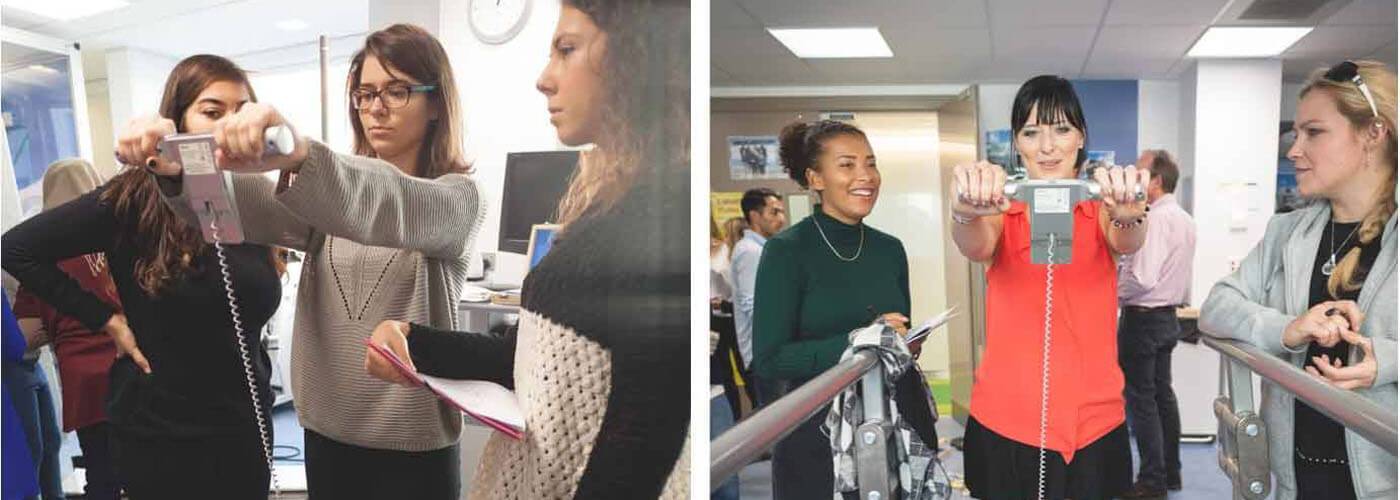
Why study Nutrition and Dietetics at UCL?
Nutrition is an important concern with global consequences. At UCL, you can learn from leading academics in the field and focus on real-life clinical case studies. Our courses contain specialist modules in a variety of areas, from human biology and nutritional science to the psychiatry of eating disorders. Find out more about studying nutrition in the heart of London.
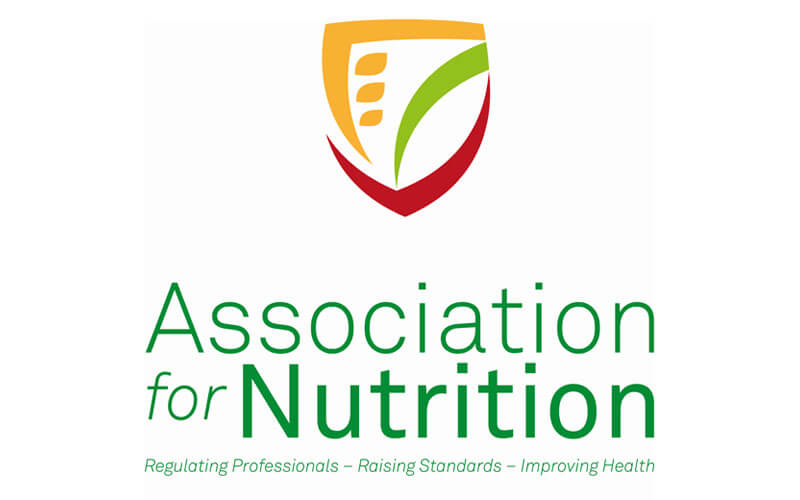
Several of our courses are accredited by the Association for Nutrition, a quality kitemark for qualifications that meet the association's competence requirements.

Meet a Dietitian
Dr Adrian Brown is a Senior Research Fellow and lecturer at UCL, and also a Senior Specialist Weight Management and Bariatric dietitian.

A really fantastic experience
Georgia studied the Eating Disorders and Clinical Nutrition MSc, a rarely-offered specialism that she was very passionate about.

Why be a dietitian or nutritionist?
The titles 'Dietitian' and 'Nutritionist' are often incorrectly interchanged. Find out more about these distinct and important roles.

Basic science for nutrition
Some of our programmes are quite heavily biochemical. If you don't have a bioscience background, follow these tips to get started.
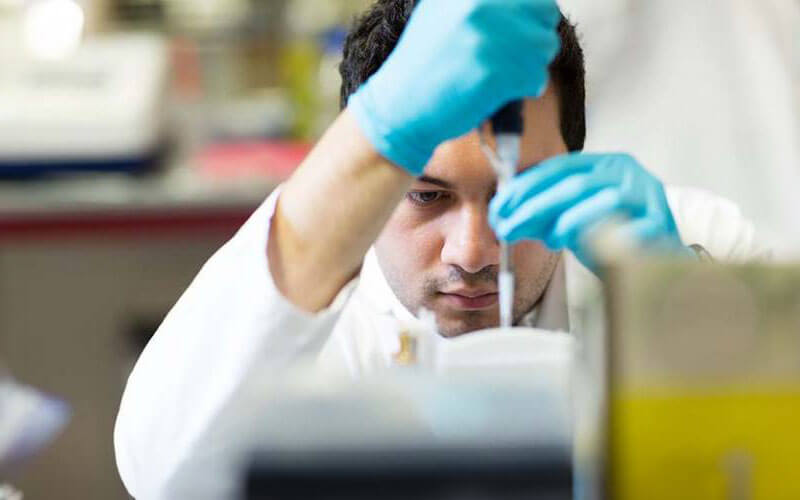
Shared first year for flexibility
Most BScs in Medical Sciences have a shared first year. This gives you the flexibility to switch degrees if your interests change.
"Help people go in the right direction"
Shahana studied the MSc in Clinical and Public Health Nutrition in London at UCL. She was a major supporter of both healthy eating and exercise and even developed her own blog while she worked on her master's degree. Follow her story and why she would recommend the course at UCL.
Sign up for updates
YouTube Widget Placeholder https://www.youtube.com/watch?v=OZsAht-jEq8
Our nutrition courses will equip you with a real advantage when entering a competitive careers market. Graduates are eligible for a wide range of UK and international career opportunities and are well-equipped for further studies such as a PhD.
Depending which programme you choose, you will be able to pursue a career as a nutritionist in the health services of the UK and other countries, in the clinical nutrition or pharmaceutical industries.
Students who are health professionals can apply for relevant clinical and research positions at a senior level. We address the needs of professionals working in clinical services in the field of eating disorders and elsewhere.
“ I made a very sudden decision to study nutrition instead of medicine, partly due to the huge amount of misinformation I was seeing online around nutrition and health. I chose UCL because of its academic reputation and thoroughly enjoyed the course. Without the MSc I would not be working as a nutritionist now, with my own private practice. The presentation skills also paid off as I now do more media work, both TV and radio, as a nutrition expert, as well as science communication through social media and publishing a book. Pixie Turner, Registered Associate Nutritionist.

Did you know?
- UCL Alumni Sir Frederick Gowland Hopkins won a Nobel Prize for the discovery of growth-stimulating vitamins.
- UCL Professor Sir Jack Drummond designed the wartime diet or rationing, since regarded as the healthiest period in British History.
- 12.4% of people aged 18+ with obesity have diagnosed diabetes, five times that of people with healthy weight.
- In the UK, the estimated cost of overweight, obesity and related morbidity to the NHS was £4.2 billion in 2007. This is predicted to reach £9.7 billion by 2050.
- UCL is ranked 7th for Clinical and Health in the 2024 Times Higher Education World University Rankings by subject.

Our research in Nutrition and Dietetics
As a global leader in nutrition research, UCL examines the incidence and associated problems on a worldwide scale of nutrition-related epidemiology, child health, overnutrition, undernutrition and the psychology behind disordered eating. We publish in high-ranking journals and regularly appear on TV and radio to discuss vital topics around nutrition, diet and health.
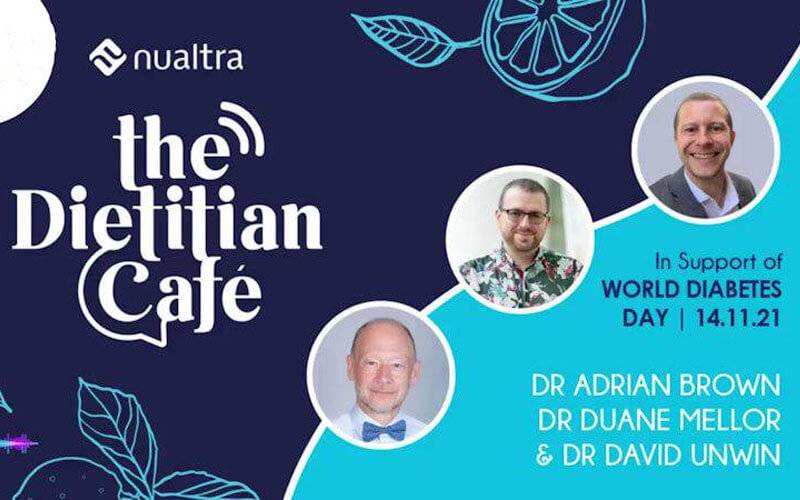
Discussing diabetes remission on The Dietitian Café
Dr Adrian Brown joins co-authors on the Dietitian Café podcast to discuss their new landmark review exploring dietary strategies for the remission of type 2 diabetes.

Academic follows ultra-processed diet for documentary
Dr Chris Van Tulleken featured in a 2021 BBC One documentary, 'What are we feeding our kids?'. He ate ultra-processed food for one month, to highlight the harm it causes the body and brain.
Our teaching leads

Dr Adrian Brown
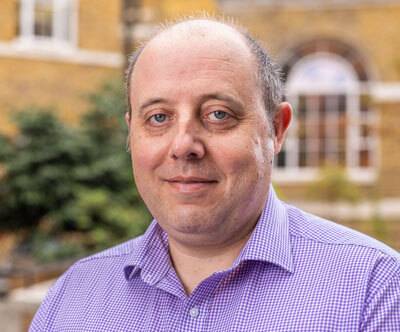
Prof. Nathan Davies

Dr Anastasia Kalea
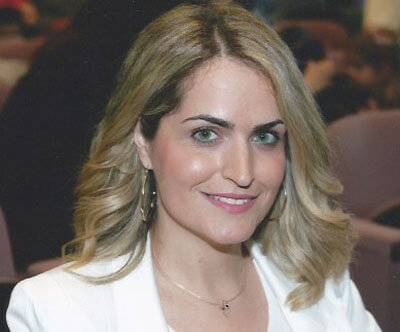
Dr Efstathia Papada

Prof. Paul Robinson

Dr Adrian Slee
Gecko Form Widget Placeholder 21FO00ics4ivxf005eblzeguup
- Postgraduate
- Nutrition and Dietetics
Nutrition Sciences and Dietetics

Our range of courses allow you to benefit from high-quality teaching facilities, links with industry, and teaching staff who are committed to providing relevance in their field.
Why you'll Love it
Industry links.
As one of the largest providers of nutrition courses in the UK, we are an international centre for clinical and public health aspects of exercise and nutrition sciences. We have close links with the NHS and other relevant organisations to deliver leading-edge courses and research.

Learning Sites
At Exton Park, students benefit from modern teaching and learning amenities, including bespoke exercise physiology and clinical nutrition laboratories, as well as excellent fitness facilities, and social and catering hubs.

Research Active Staff
We have an experienced team of researchers, with an international reputation. Our research specialisms are in the areas of cardiometabolic health; clinical practice; public health nutrition and physical activity; functional foods; and hydrocolloids research, and we welcome students to apply for MPhil and PhD in these areas.

Our Courses
Clinical sciences & nutrition mres | full-time, part-time exton park, chester.
Course Description to be added
Exercise and Nutrition Science MSc | Full-Time, Part-Time Exton Park, Chester
Food science & innovation msc | full-time, part-time exton park, chester, human nutrition msc | full-time, part-time exton park, chester, nutrition and dietetics msc | full-time exton park, chester, public health nutrition msc | full-time, part-time exton park, chester, my saved courses ( 0 ).
- Interesting for you
- My settings
Nutrition & Dietetics in United Kingdom

Why Study Nutrition & Dietetics in United Kingdom
- Studying Nutrition & Dietetics in United Kingdom is a great choice, as there are 18 universities that offer PhD degrees on our portal.
- Over 551,000 international students choose United Kingdom for their studies, which suggests you’ll enjoy a vibrant and culturally diverse learning experience and make friends from all over the world.
- We counted 17 affordable PhD degrees in United Kingdom , allowing you to access quality higher education without breaking the bank. Moreover, there are 355 available scholarships you can apply to.
15 Nutrition & Dietetics PhDs in United Kingdom
Food and Human Nutrition This Food and Human Nutrition PhD programme from Newcastle University seek to understand how food affects... Faculty of Medical Sciences Newcastle upon Tyne, England, United Kingdom
Ageing The Ageing MPhil, PhD, MD programme from Newcastle University range of research topic is diverse. We accept... Faculty of Medical Sciences Newcastle upon Tyne, England, United Kingdom
Nutrition The PhD in Nutrition programme at The University of Manchester enables you to undertake a research project... The University of Manchester Manchester, England, United Kingdom
Study in United Kingdom
Universities in the UK are some of the most highly regarded in the world, and for good reasons. Some of the world's most highly regarded research takes place in British universities, which are regularly featured in international rankings. While studying in the UK, you will be able to develop in a highly multicultural environment with high chances of pursuing lucrative careers after graduation. The teaching in the UK is designed to encourage new idea generation, encouraging individual research and group cooperation, through class discussions and creative assignments.
Is United Kingdom the right place for you?
Take the test and find out which country is your best fit.
Explore your Nutrition & Dietetics degree
Nutrition and Dietetics degrees are closely related to Life Sciences and teach students on improving human health and well-being, through a well-organised lifestyle and healthy eating habits. Nutrition degrees offered by universities and colleges abroad aim to ensure a healthy diet for patients, lowering chances for diseases or malnutrition.
Is Nutrition & Dietetics the best for you?
Take the test and find out if Nutrition & Dietetics is the right path for you.
Nutrition & Dietetics Scholarships and Financial Aid in United Kingdom
Available Options
Go to your profile page to get personalised recommendations!

MPhil or PhD or Masters by Research
Find a course
Start dates.
January 2024 / September 2024
Application deadline
Please allow at least four months between submitting your application and your expected start date, especially if you are an international student arranging a visa.
Course length
Full time: 2 - 3 years
Part time: 3 - 4 years
Department of Sport, Health Sciences and Social Work
Funding status
Self-funded
Browse our research
How to apply
Contact [email protected]
A research degree in Nutrition allows you to:
- develop your skills
- contribute to internationally recognised research
- be supported by skilled staff and a vibrant research student community.
We offer a number of flexible part-time and full-time research degree opportunities including MSc by research, MPhil, PhD and PhD by published work.
To get an overview of the research and groups within the department, and the areas where we can support research degree projects, take a look at our Research Centres and Groups page .

Research expertise
Underpinned by the work of our research centre, the department is at the forefront of research in a number of fields.
Institutes and Centres
- Oxford Brookes Centre for Nutrition and Health
- Clinical Applied Nutrition (CAN)
Degree routes
All students enrol as probationer research students. During the first year you will formally register your research proposal for one of the below routes.
Masters by Research
These research degrees run for one year full time or two years part time and allow students to critically investigate and evaluate an approved topic and combine the equivalent of up to one semester’s taught programme (focusing on research training) with a major research project. As with other research degrees, they are examined by thesis and viva.
Length of study : Full-time: 1 year. Part-time: 2 years.
Entry requirement : The minimum entry requirement for the degree of MA, MSc and LLM by Research is a lower second-class UK honours degree or equivalent qualification.
If you undertake an MPhil you will:
- critically investigate and evaluate an approved topic
- demonstrate understanding of research methods appropriate to the chosen field
- Present and defend a substantial thesis by viva.
Length of study : Full-time: 2 years. Part-time: 3 years.
Entry requirement : The minimum entry requirement for an MPhil degree, or an MPhil with the intention of transferring to a PhD, is a first-class or upper second-class UK honours degree or equivalent qualification.
Applications are also welcomed from those holding qualifications other than the above and will be considered on their merits and in relation to the nature and scope of the work proposed. You will be required to provide the names of two academic referees.
MPhil with the possibility of transfer to a PhD
A candidate registered initially for an MPhil may be able to transfer to a PhD, and has to complete a transfer process within the Faculty, once sufficient progress has been made on the work to provide on the evidence of the development to PhD.
This is normally after 18 months of full-time study or 24-26 months of part-time study). Transfer comprises three main elements:
- a 1000 word transfer report which should be sent to the relevant Postgraduate Research Tutor and the supervisory team
- an oral presentation and/or interview
- an additional piece of work as indicated by the Faculty, Department/School or supervisory team.
Length of study : Full-time: 3 years. Part-time: 4 years.
PhD (direct entry)
If you undertake a PhD you will:
- critically investigate and evaluate an approved topic, resulting in an independent and original contribution to the field
- present and defend a substantial thesis by viva.
Entry requirement : The normal entry requirement for the degree of PhD is a master’s degree in a discipline which is appropriate to the proposed research and which has included research training and a research project.
In exceptional cases, applicants who have a good honours degree (or equivalent) may apply for direct registration to PhD if they have appropriate research or professional experience at postgraduate level which has resulted in published work, written reports or other appropriate evidence of accomplishment.
Entry requirements
All students must be able to meet the University’s requirements for a research degree, which is to be able to devote a minimum of 35 hours per week (full-time) or 15 hours per week (part-time) to the programme of research.
The minimum entry requirement for the degree of MPhil, or MPhil with transfer to PhD, is a first-class or upper second-class UK honours degree or equivalent qualification.
The normal entry requirement for a PhD is a Masters degree, or exceptionally a good honours degree/equivalent.
The minimum entry requirement for the degree of MA, MSc and LLM by Research is a lower second-class UK honours degree or equivalent qualification.
English language requirements
Our requirement is IELTS: 6.5-7.0 overall, with a minimum of 6.0 in each component (reading, writing, listening and speaking), depending on the subject. Please note that an IELTS certificate must be current; they are only valid for 2 years from issue. For further information about the test visit the IELTS website . Please note that we are unable to accept TOEFL qualifications.
However, there may be some exceptions. See UK Government visa information for more detail on the information.
English requirements for visas
If you need a student visa to enter the UK you will need to meet the UK Visas and Immigration minimum language requirements as well as the University's requirements. Find out more about English language requirements .
Application process
We welcome initial enquiries. Please contact the Research Administrator ( [email protected] ) and/or the relevant Postgraduate Tutor or Supervisor.
- If you have a research proposal in mind, explore our research groups and supervisory staff webpages, to identify the relevant research group/s for your research.
- Check the fees information on the university website. Oxford Brookes Alumni may be entitled to a discount on course fees.
- Email your CV and an outline of your area of interest to [email protected] . Give a brief explanation of how your studies will be funded.
- Once we have the initial information we will liaise with you as necessary and pass the information to the relevant Postgraduate Tutor/s, who will advise whether an application can be progressed. If this is possible we will invite you to submit an application through the university system.
Tuition fees
Fees quoted are for the first year only. If you are studying a course that lasts longer than one year, your fees will increase each year.
For International fees the following factors will be taken into account by the University when it is setting the annual fees: inflationary measures such as the retail price indices, projected increases in University costs, changes in the level of funding received from Government sources, admissions statistics and access considerations including the availability of student support.
Home fees are set by UK Research and Innovation (UKRI) and are released approximately five months before the start of each academic year.
If you have any questions about fees, get in touch with the Research Degrees Team at [email protected] .
How and when to pay
Tuition fee instalments for the semester are due by the Monday of week 1 of each semester. Students are not liable for full fees for that semester if they leave before week 4. If the leaving date is after week 4, full fees for the semester are payable.
- For information on payment methods please see our Make a Payment page.
- For information about refunds please visit our Refund policy page
Compulsory costs
| Additional costs | Amount (£) |
|---|---|
| The continuation fee, where it is payable is compulsory, but not applicable to Masters by research or PhD by Published Work, detailed as follows: |